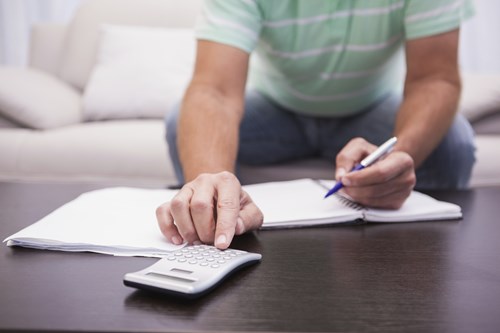Budget time: A good reminder to check if your budget adds up

In the last fortnight, the Australian Government announced their latest budget for the country. Although the Governments budget deals with money in the tens of billions, it still uses the same basic principles as a simple household or personal budget: balancing spending with income. With this in mind, Budget time is a good reminder to get on top of your budget, and here are a few things to consider while you plan out how you ll spend and how you ll save against what you ll earn.
Spending more than you earn
A basic principle of a good budget is not spending more than you earn. Now, we all know that s far easier said than done. In fact, 38% of households in NSW spend more than they earn. And while its important to acknowledge some people are in serious financial stress beyond their control, often balancing your budget is within your control, if you just dig deep to find the source of the spending leaks.
For some people it s just a matter of not knowing that their spending exceeds their income. They just simply haven’t created a budget for themselves so they can see where every dollar is going. Gradually each month a little more goes onto the credit card debt, which doesn’t get paid and so their debt mounts up and with credit card interest often at a whopping 20% (yep, that s correct), it can feel insurmountable to get on top of it.
Outgoings can quickly get on top of you and take over your life, leaving you constantly on the backfoot. Yet often all a little more financial zen takes is sitting down and writing a realistic budget and identifying areas of your life where you may be able to rein in spending. If you re not sure where all your money is going, try keeping track of everything you spend over the period of a month. At the end of the month you should have a clear picture of what s happening to your money (you’ll probably be surprised how much is going towards takeaways, coffees, and other bits and pieces that aren’t absolute needs in your life).
When addiction takes over your budget
For some people though there’s something more difficult standing in the way of balancing their budget: addiction. This doesn’t have to be a drug addiction (addictions to shopping and gambling can cause serious financial stress), but addictions to drugs, including marijuana, can be a serious cause of financial troubles.
If you’re in a situation where you have to smoke cannabis every day (or several times a day) just to feel normal , or you’re finding that you’re gradually smoking more and more just to try to get that same high , then its fair to say you re probably addicted to weed. And addictions cost money. Marijuana isn t cheap and if you’re using it a lot it s going to create a serious hole in your budget.
And lets not forget that every dollar spent on weed is money not spent on something more positive in your life like electricity!
If you sit down and work out how much you spend on weed a day, then multiply that amount by 365 to work out what you’re spending in a year, you could come up with a seriously scary figure. Imagine what else you could be doing with that money?
How can I stop weed burning a hole in my budget?
Lets face it, unless you re a lottery winner or heiress, you ve really got to get on top of your addiction to have a healthy budget (and a healthier life), and that means cutting down or quitting weed altogether. And while that may seem like a tough ask, NCPIC has a tonne of resources to help you out. Check out our Get Help page, call our National Cannabis Helpline on 1800 30 40 50, sign-up to our online programs like Joint Effort or Reduce Your Use, or even download or order our Do-it-Yourself Guide to Quitting Cannabis.





